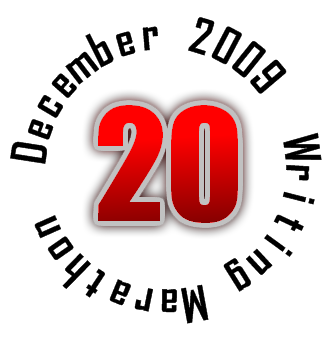My friend (and incorrigible Scrabble player) Maurice Broaddus and I had a long conversation last year about setting goals. One thing that he tries to do is have twelve short stories out in the wilds. Good idea! I was up to half a dozen, but right now I’m back down to three, since the others got picked up by various publishers.
Two of those three are set in a far-flung future that was going to be a game. (That’s another story…) Anyway, this setting was developed about ten years ago. To create it, I took three basic elements: economy, politics, and overpopulation and spun them out about five hundred years into the future. For some of the physical setting elements to make sense, the time period is noted 1,000 years ahead.
Here’s what I predicted back then:
+ The Republican Party will splinter, creating new political groups. One portion will be based on a platform for gun rights and will be funded by the NRA. The other, a religious-based group with a heavy emphasis on Christian fundamentalism.
+ Credit card companies will collapse. Due to poor economic conditions, more people will rely on credit cards to survive. Unfortunately, their combined inability to pay these bills will result in a massive institutional collapse. This has a permanent effect on the economy and credit cards are no longer issued to most individuals.
+ Indentured servitude will return, replacing minimum-wage jobs. To erase debt and ease the financial devastation caused by massive debt, some corporations will offer indentured servitude in exchange for a clean slate.
+ Corporations will emerge as families. Instead of having a corporation that you work for, bills to pay, housing to find, etc. My characters have campuses they live on. Everything is provided for them as long as they are loyal to the corporation. It’s a skilled worker’s best chance at having a decent life.
+ Government will fracture into city-states. Five hundred years from now, the expansion of cities and the problems they deal with will be handled moreso on a local than a national level. My characters live in, for lack of a better explanation, micro-countries. While the government is still present, they occupy three spaces at that time instead of one in D.C. They’re in Chicago and L.A. specifically. Part of the reason why these centers exist, is because after a while our Federation of States begins to creep into Canada and parts of Mexico.
+ We ration. Everything. Overpopulation is a drain on all our resources, so goods–including water, basic foodstuffs, clothing, etc.–are not readily available. There is a very visible division between the rich and the poor. No middle class. No lower class. In most places, either you have or you don’t. Over ninety-five percent of the population has nothing. As as result, we do some interesting things to try to survive and help one another.
For this world, many countries degrade through a series of events and factors that we do not work together to prevent. Um, yeah… I did make predictions for multiple countries… The two that I focused heavily on were Russia, due to the huge find they’ll one day discover beneath Siberia, and China.
Now, this is fiction. None of these things may happen, but I feel that they could. Hence, as a writer, I feel I can provide a more realistic setting that you can really relate to. Here, there is no apocalypse. Just the slow creep of time and the aggregation of multiple events.

 If you’ve ever been in the “I need to pay rent and I don’t like junk food” place that I’ve been in before, you’ve probably had these same discussions with yourself. Then, when any and all forms of writing assignments start piling in, you get excited because dammit, you’re a writer. Did it matter you just worked for three weeks on an article and didn’t get paid for it? Did it matter you don’t own the rights to what you just wrote? No. What mattered is that you wrote and got published, so you start to let a lot of things slide.
If you’ve ever been in the “I need to pay rent and I don’t like junk food” place that I’ve been in before, you’ve probably had these same discussions with yourself. Then, when any and all forms of writing assignments start piling in, you get excited because dammit, you’re a writer. Did it matter you just worked for three weeks on an article and didn’t get paid for it? Did it matter you don’t own the rights to what you just wrote? No. What mattered is that you wrote and got published, so you start to let a lot of things slide. Every day, I read headline after headline about all the things writers “should” be doing. From things you shouldn’t do or say in a query letter to the various mistakes you can make when you’re trying to sell your books, I can certainly see how anyone might feel overwhelmed.
Every day, I read headline after headline about all the things writers “should” be doing. From things you shouldn’t do or say in a query letter to the various mistakes you can make when you’re trying to sell your books, I can certainly see how anyone might feel overwhelmed.  If you want to write professionally, handling bad news and criticism in a way that doesn’t damage your soul for eternity pretty much comes with the territory. The only way you’re going to learn about this business is by getting out there and hoofing it. Yes, there’s a lot of conventional wisdom out there that is worth listening to, but that is up for you to figure out what’s meaningful to your career and what’s not. Your experience is going to be different than mine is, because you are a different person than I am. That doesn’t mean “you’re doing right” or “you’re doing it wrong.” If you find something that works for you? Great. If you fall flat on your face? Learn from it. Embrace it. Then? Get back up again.
If you want to write professionally, handling bad news and criticism in a way that doesn’t damage your soul for eternity pretty much comes with the territory. The only way you’re going to learn about this business is by getting out there and hoofing it. Yes, there’s a lot of conventional wisdom out there that is worth listening to, but that is up for you to figure out what’s meaningful to your career and what’s not. Your experience is going to be different than mine is, because you are a different person than I am. That doesn’t mean “you’re doing right” or “you’re doing it wrong.” If you find something that works for you? Great. If you fall flat on your face? Learn from it. Embrace it. Then? Get back up again. We’re two-thirds of the way through, and from what many of you have been sharing, this has been a “busy-insane-nutso” month for many of us. Still, regardless of whether or not you’ve written or revised one chapter or several, there’s something we can all learn from being this busy. Sometimes, in order to write we need to shut off our brains and just put our fingers on the keyboard. (Like Yoda says, “Do or do not, there is no try.”)
We’re two-thirds of the way through, and from what many of you have been sharing, this has been a “busy-insane-nutso” month for many of us. Still, regardless of whether or not you’ve written or revised one chapter or several, there’s something we can all learn from being this busy. Sometimes, in order to write we need to shut off our brains and just put our fingers on the keyboard. (Like Yoda says, “Do or do not, there is no try.”)